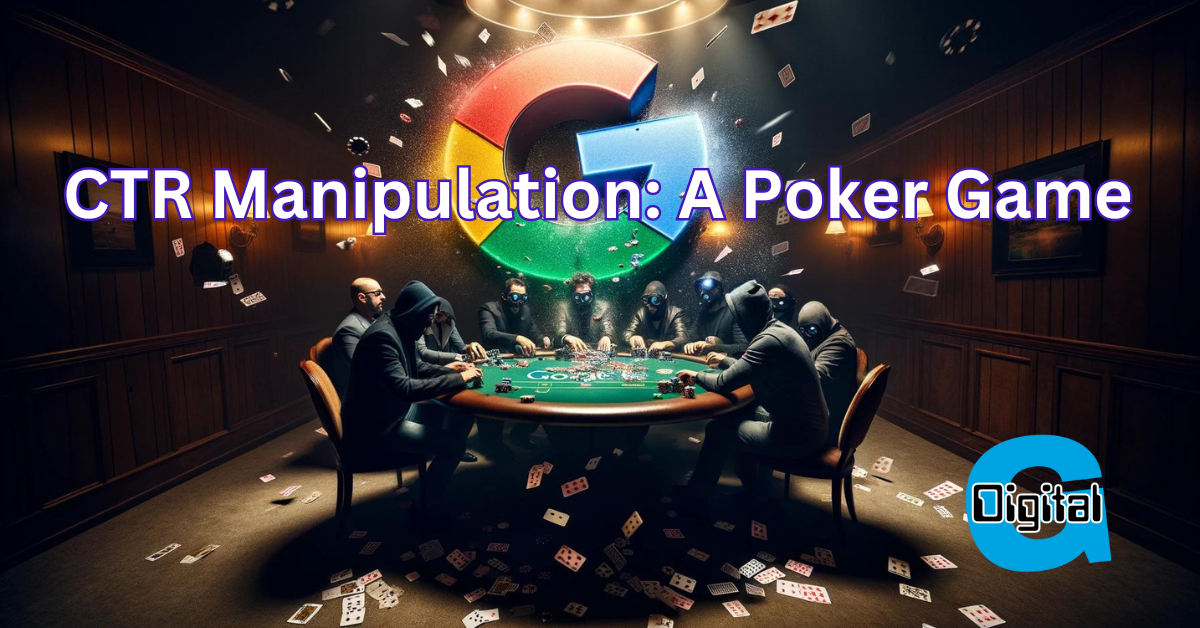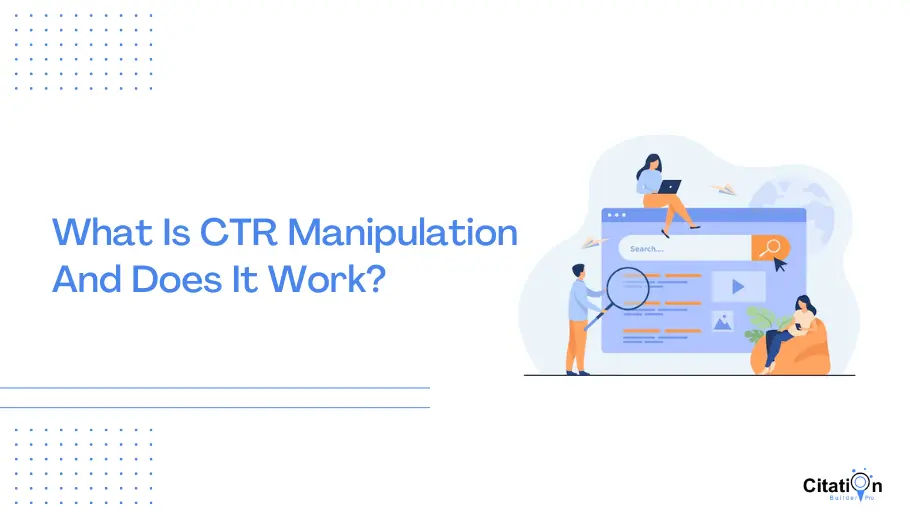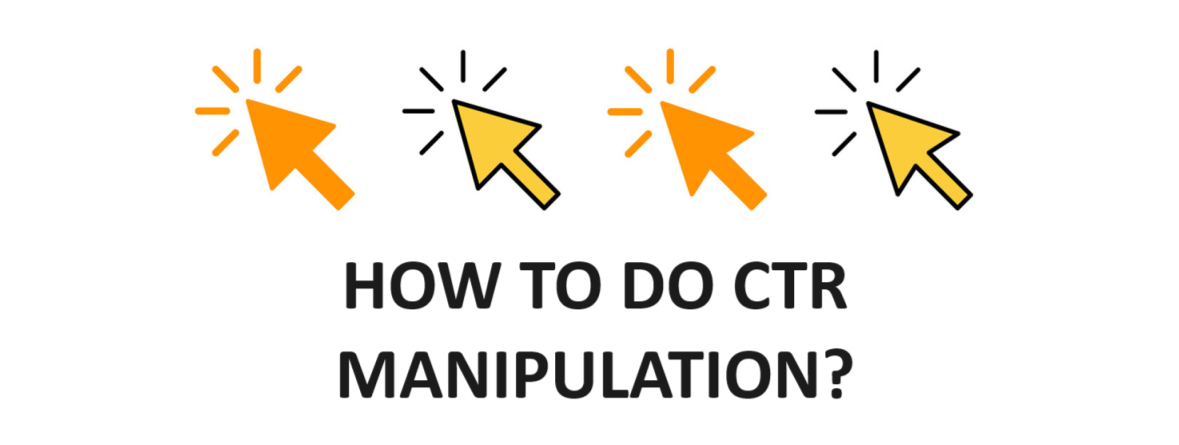Advanced GMB CTR Manipulation: Elevate Your Regional Look Performance
Exploring the Relationship In Between CTR Manipulation Services and Customer Behavior
In the realm of electronic advertising, the impact of click-through rate (CTR) manipulation services on individual behavior stays a complicated and intriguing subject. By dissecting the intricate partnership between CTR control services and user habits, fascinating understandings arise that might reshape our understanding of electronic advertising techniques and their results on consumers.
Influence of CTR Control on Behavior
Analyzing the influence of Click-Through Price (CTR) control on user behavior reveals essential understandings right into the characteristics of online engagement. CTR manipulation involves artificially blowing up the number of clicks on a particular link or ad to trick customers and search engines. This technique can cause a distorted understanding of a page's popularity or relevance, ultimately impacting individual habits.

Additionally, CTR manipulation can skew the information used by algorithms to customize customer experiences. This can lead to users being served material that does not straighten with their choices or interests, eventually leading to a decline in user fulfillment and engagement. Comprehending the effect of CTR manipulation on individual actions is essential for preserving transparency and rely on on the internet communications.
User Interaction With Manipulated CTR
User involvement with controlled CTR information often results in manipulated assumptions of online material popularity and significance. When users engage with web content based on unnaturally inflated Click-Through Fees (CTR), they might think that particular details, items, or services are much more prominent or credible than they really are. This can cause individuals choosing based on deceptive information, bring about potentially negative results.
Involvement metrics like likes, shares, remarks, and time invested in a page are usually affected by CTR adjustment. Individuals may be more likely to engage with content that appears to have greater involvement prices, further bolstering the cycle of skewed perceptions. Consequently, web content makers and marketers might prioritize creating material that generates high CTR rather than concentrating on producing truly important and appropriate material.

Mental Effects of CTR Control

In addition, the emotional impacts of CTR control can also look at here now manifest in altered decision-making processes. Users might be more inclined to click on content entirely based upon its regarded popularity, instead of its real worth or importance to their requirements. This behavioral shift can cause a shallow interaction with on-line content, where users might forget high-quality yet much less preferred offerings for those with synthetically improved CTRs.
Basically, the mental implications of CTR adjustment highlight the value of keeping transparency and credibility in online communications to promote genuine user interaction and trust fund.
Ethical Considerations in CTR Manipulation
Considering the moral ramifications of manipulating click-through prices (CTR) in on-line platforms is necessary for preserving stability and trust fund within the electronic ecosystem. CTR adjustment raises worries regarding tricking users, distorting data analytics, and compromising the integrity of on the internet content. One major moral factor to consider is the potential effect on user freedom and Website decision-making. By artificially pumping up CTR, users might be misguided right into clicking links or advertisements they would not have actually selected otherwise, leading to a disingenuous online experience. CTR manipulation can skew the performance metrics that businesses count on to make strategic choices, eventually impacting market competitors and customer trust.
Another honest element to consider is the fairness of controling CTR to acquire an unfair benefit over competitors. Engaging in such practices not only goes against concepts of reasonable play yet additionally undermines the trust fund that individuals place in on-line platforms. It is crucial for organizations and digital online marketers to support moral standards in their techniques to guarantee transparency, integrity, and long-term sustainability in the on-line atmosphere.
Ramifications for Digital Advertising
With the boosting reliance on digital systems for advertising objectives, the practice of manipulating click-through prices (CTR) poses substantial implications for the performance and honesty of digital advertising and marketing approaches. CTR manipulation can cause skewed data analytics, misinforming marketing experts into believing that their campaigns are doing far better than they in fact are. This can result in misallocation of sources, with firms investing in underperforming methods based on falsified CTRs. Additionally, when individuals recognize that CTRs have been controlled, it can wear down rely on the brand, resulting in lasting adverse effects for client commitment and brand reputation.
In addition, using CTR control solutions can create an unreasonable affordable landscape, where firms that participate in such methods obtain an artificial benefit over those that follow moral advertising criteria. This can suppress advancement and creative thinking in digital marketing, as success becomes more concerning control strategies than delivering genuine worth to customers. Ultimately, the effects of CTR control for electronic advertising prolong beyond temporary gains, affecting the total sustainability and reputation of advertising initiatives in the digital world.
Verdict
In conclusion, the relationship in between CTR manipulation services and customer behavior is intricate and diverse. The impact of CTR control on habits, user engagement with controlled CTR, mental effects, ethical factors to consider, and effects for electronic advertising and marketing all contribute fit this relationship. Understanding these dynamics is important for marketing experts and researchers alike in order to browse the moral effects and optimize the effectiveness of their electronic advertising strategies.